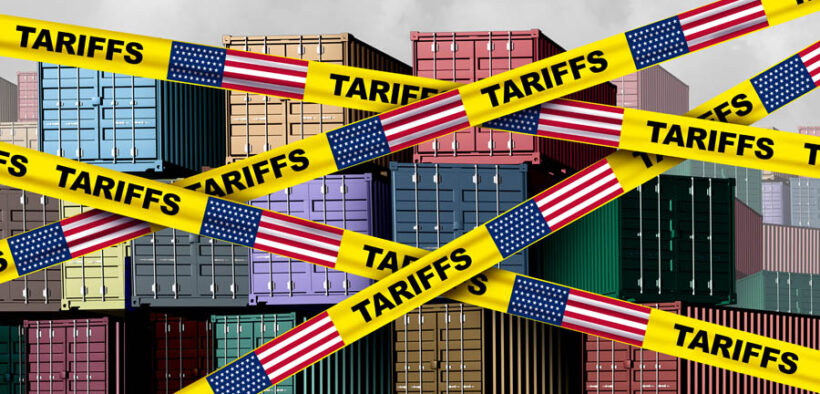New US tariffs raise concerns, opportunities for Puerto Rico’s economy

Estudios Técnicos says trade shifts could raise costs but also drive manufacturing and agriculture growth on the island.
The latest round of reciprocal tariffs announced by President Trump is already rippling through global markets, and Puerto Rico may face both economic challenges and strategic opportunities as a result, according to a new study by the Economic Analysis and Policy Division of Estudios Técnicos Inc.
The new trade measures, announced April 2, impose a base 10% tariff on imports from countries like the Dominican Republic, Brazil and Argentina. Higher rates apply to key trading partners such as China (34%), Vietnam (46%) and the European Union (20%). A 25% tariff on foreign-made automobiles was also introduced.
The report concludes that the implications for Puerto Rico are multifaceted.
On one hand, the island’s reliance on imported goods — particularly agricultural products, vehicles and medical components — makes it vulnerable to rising costs. On the other, the shift in U.S. trade policy could encourage local production and attract manufacturing activity to U.S. jurisdictions such as Puerto Rico.
“Puerto Rico’s share of imports from foreign countries has already decreased, replaced by U.S.-sourced goods that often reflect earlier tariff impacts,” the report noted.
The new tariffs are expected to add pressure to already-sensitive pricing structures, potentially fueling inflation.
Pharmaceuticals, a core industry in Puerto Rico, are temporarily exempt from the latest tariffs. However, the exemption may be short-lived. The Trump administration has signaled it may target pharmaceutical imports in the future, giving companies time to relocate operations. This could benefit Puerto Rico if the island is positioned as an alternative hub for U.S.-based drug manufacturing.
The island’s agricultural sector may also see renewed interest. Currently, 41% of food products are imported from foreign countries. Rising prices could stimulate local farming and food manufacturing, though consumers may experience higher prices in the short term, the report states.
Puerto Rico’s automotive market is also expected to be affected. Vehicle prices could rise by several thousand dollars, depending on the imported component content. Analysts at Estudios Técnicos project that sales may decline more sharply than the previously forecast 6% drop for 2025.
Further adding to cost concerns is a separate U.S. Trade Representative proposal to impose service fees of up to $1.5 million per net ton on Chinese-built ships calling at U.S. ports, including San Juan. This measure would raise shipping expenses and could affect a broad range of imported goods.
“Initiated in April 2024 and finalized on Jan. 21, 2025, this measure would increase port fees, raising overall shipping costs,” the report states.
Opportunities for Puerto Rico
Despite these challenges, Puerto Rico may benefit from shifts in global supply chains. The potential for reshoring — or relocating manufacturing back to the United States — could attract new investment in logistics and production. Still, Estudios Técnicos notes that the island’s ability to seize those opportunities will depend on how long trade tensions persist and whether local industries can respond quickly to changing market conditions.
While falling oil prices and a weaker dollar could help ease some inflationary pressures, rising input costs and broader uncertainty may weigh on economic growth in the short term.
Puerto Rico’s ability to capitalize on these changes, the report concludes, will be critical to mitigating risks and unlocking long-term gains.












